Looking to boost your IT security skills? Enrolling in a quality course can definitely give you a leg up.
Whether you’re just stepping into the world of IT or aiming to climb even higher, there are tons of fantastic options waiting for you.
The right course in IT security can not only enhance your knowledge but also ace your skills and improve your career prospects. You’ll discover the latest threats out there and gain the know-how to guard against them.
Many of these courses even lead to certifications that employers crave.
Let’s check out some of the top IT security courses that can give you the edge in this exciting field.
1) Certified Information Systems Security Professional (CISSP)
Want to become a cybersecurity superstar? The CISSP certification might just be your ticket.
It’s a big deal in the IT security scene and can work wonders for your career.
With CISSP, you’ll explore eight crucial areas of cybersecurity, covering everything from security and risk management to asset security and software development security.
It’s pretty comprehensive!
To get certified, you’ll need at least five years of experience in two or more of these domains.
Not quite there yet? No sweat.
You can still take the exam and become an Associate of (ISC)².
The exam might make you sweat, but there are plenty of prep resources.
You can find online courses, join study groups, or simply hit the books yourself.
Once you pass, you’ll be part of a global network of cybersecurity pros.
Plus, you might see a nice bump in your paycheck; CISSP-certified folks can rake in about $128,000 annually in North America.
2) Certified Ethical Hacker (CEH)
Do you want to think like a hacker? The Certified Ethical Hacker (CEH) course is tailor-made for you.
It arms you with skills to identify weak spots in computer systems.
You’ll dive into various hacking techniques and learn how to defend against them.
The course covers everything from network scanning to system hacking and malware threats.
CEH is your golden ticket to boosting your IT career.
Big names like IBM and Google are on the lookout for this certification.
Thanks to AI integration, the course is more up-to-date than ever, providing hands-on experience with the latest hacking tools and techniques.
After you wrap up the course, you’ll be ready for in-demand positions like penetration tester or information security analyst.
Both roles are in high demand right now!
Recognized globally, CEH is even leveraged by the Pentagon and Fortune 100 companies, making it an attractive choice for both government and private sector gigs.
3) CompTIA Security+
Looking to sharpen your IT security skills? The CompTIA Security+ certification could be just what you need.
It’s pretty popular and covers a wide array of security topics, making it perfect for newcomers and seasoned pros alike.
This course will take you through crucial areas like network security, compliance, risk management, cryptography, and access control.
By mastering these skills, you’ll be ready to identify vulnerabilities and implement robust security measures.
Check out some top network security courses that delve deeper into these subjects, ensuring you gain hands-on experience.
One neat aspect of Security+ is its vendor-neutrality.
You won’t be boxed into any specific tech.
Instead, you’ll get a solid grasp on security principles applicable across the board.
If you’re itching for hands-on practice, the CertMaster Labs is your playground for real-world security tasks.
This can ramp up your confidence when facing actual security challenges on the job.
Preparing for the exam? Check out the CompTIA Security+ 701 course on Coursera that covers everything you need from general concepts to security operations.
4) Certified Information Security Manager (CISM)
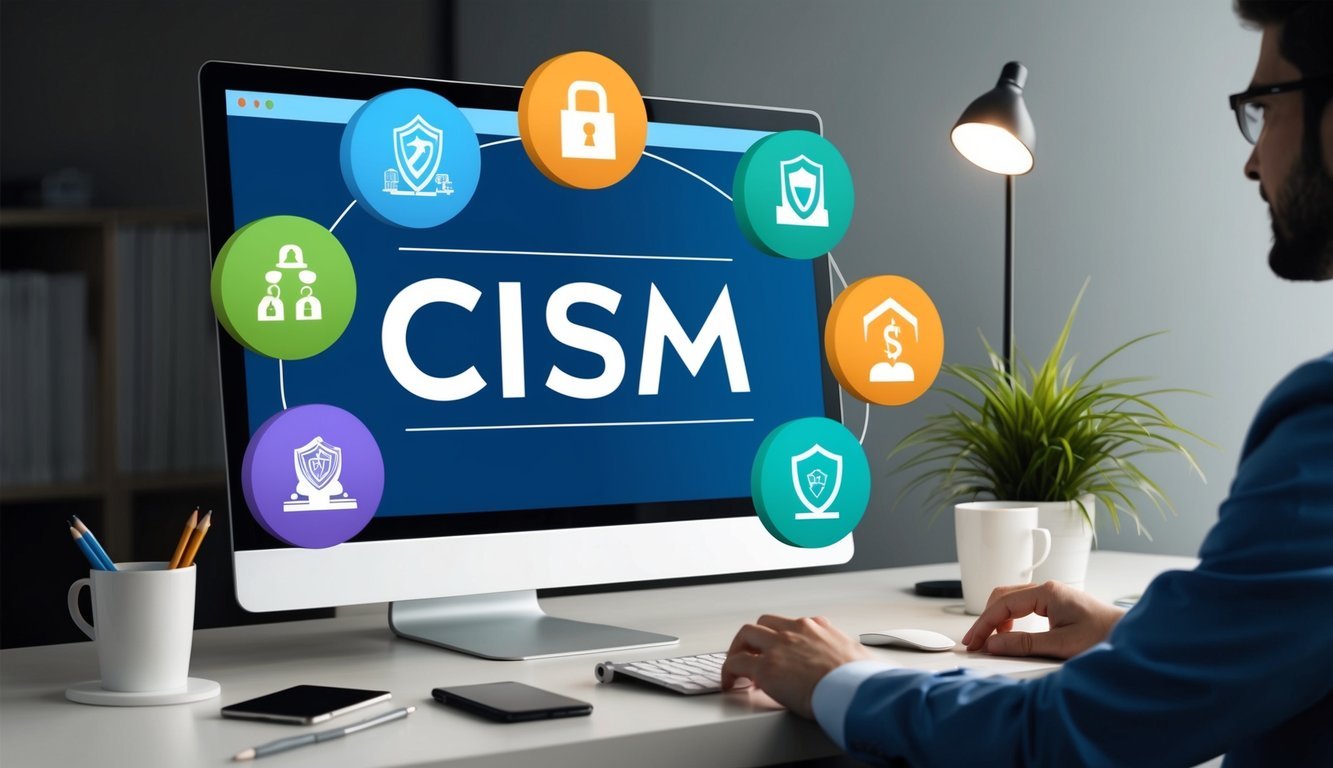
Ready to take your IT security career up a notch? The Certified Information Security Manager (CISM) certification could be exactly what you need.
This certification is perfect for professionals eager to step into management roles.
It signals that you’ve got what it takes to handle security incidents and manage risks effectively.
To get certified, you’ll need a bit of experience.
The exam requirements call for five years of experience in information security, with at least three of those in management.
The exam isn’t a walk in the park, either.
You’ll be looking at 150 multiple-choice questions and four hours to tackle it.
But don’t worry; there are plenty of resources out there to help you prep.
Online courses are widely available and cover essential topics—from security governance to incident management.
Some even offer direct mentorship, which can be super handy when you hit a tricky topic.
5) Certified Information Systems Auditor (CISA)
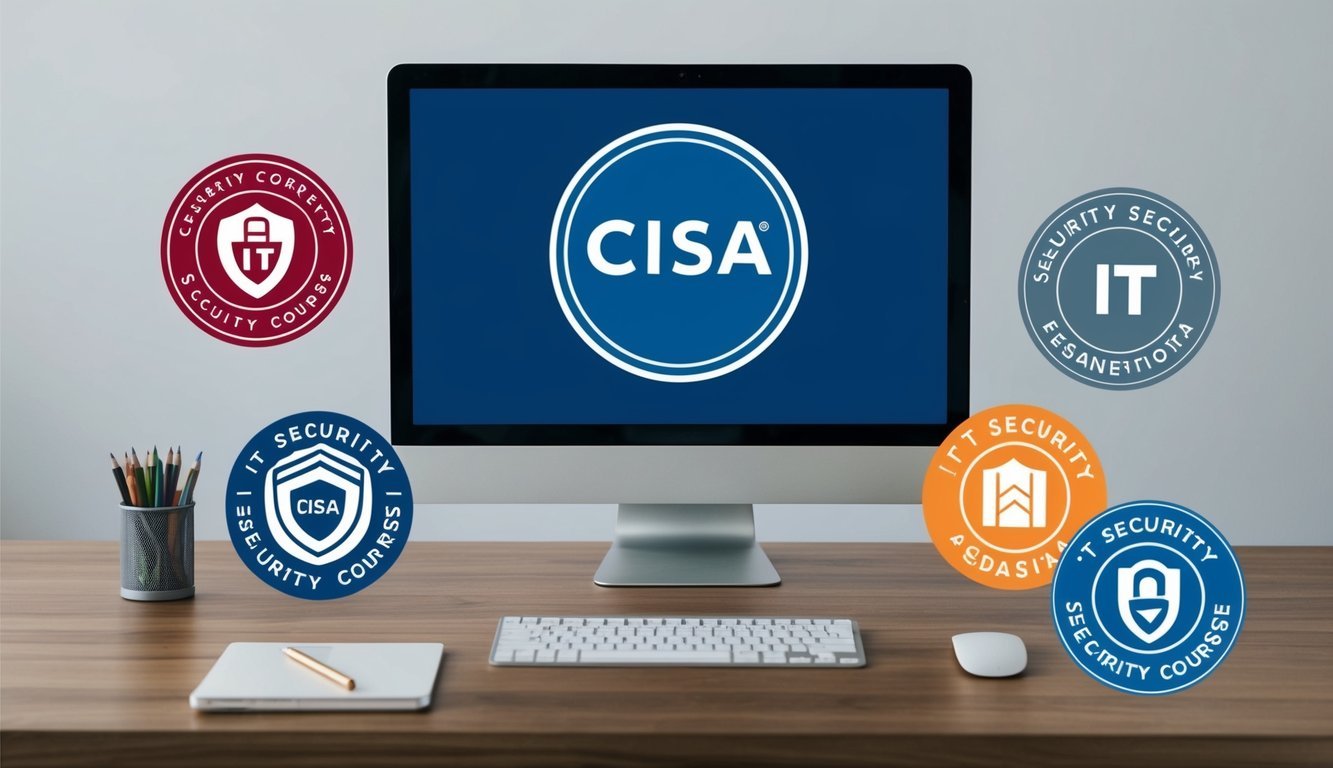
Want to take your IT auditing skills to the next level? The CISA certification is your answer.
It’s a globally recognized credential that shows you know your stuff when it comes to auditing, control, and security of information systems.
CISA is managed by ISACA, an authority in the IT biz.
To earn your certification, you’ll pass an exam covering five main areas, including the auditing process, IT governance, and system development.
What’s great about CISA is that it keeps up with the latest tech trends.
You’ll even explore modern topics like AI and blockchain, ensuring you’re ready for contemporary IT challenges.
CISA certification can really open doors career-wise.
Many employers recognize it as a mark of expertise, and it’s considered one of the top-paying IT certifications out there.
If you’re looking to prepare, don’t hesitate to explore Coursera’s CISA course, which hits all the key areas you need to master.
Prefer other options? Infosec offers dedicated CISA training too.
Just a heads-up, you’ll need some experience to qualify for CISA.
But if you’ve got the right education, you can substitute some of that work experience.
6) Offensive Security Certified Professional (OSCP)
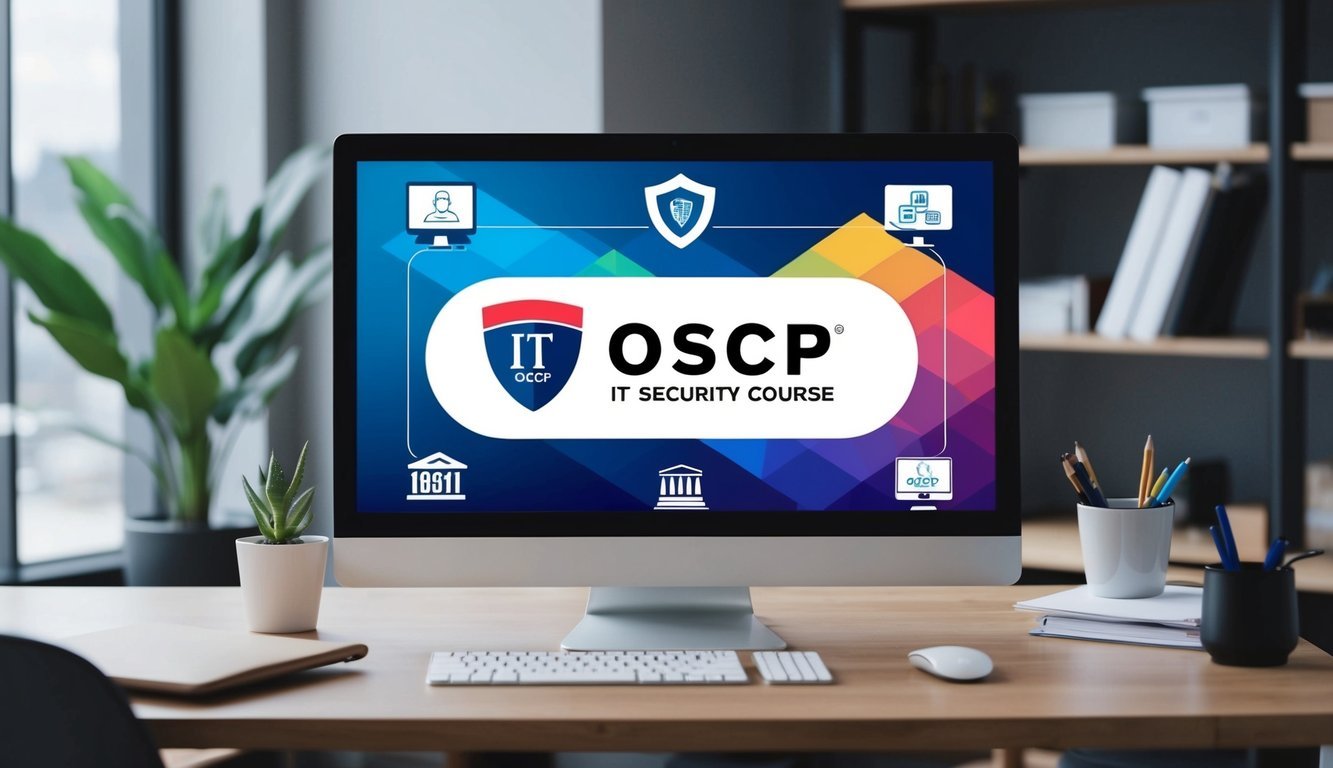
Looking to put your hacking skills to the test? The OSCP certification could be your challenge.
This hands-on exam really puts your penetration testing skills on the line.
You’ll be tasked with hacking into multiple systems within 24 hours, and let me tell you, it’s intense! But if you succeed, you’ll prove you’ve got the real deal when it comes to ethical hacking.
The OSCP course teaches you how to work with Kali Linux tools for penetration testing.
You’ll dive into recon, scanning, and exploiting vulnerabilities.
Getting this certification can open doors to fantastic career opportunities since many companies actively seek out OSCP holders for cybersecurity roles.
It shows you can think like a hacker and identify weak spots in their defenses.
Preparation takes commitment, as you’ll need to spend plenty of time in the provided labs.
But don’t sweat it— the course gives you all the tools to build your skills before the big day.
Ready to step into the world of ethical hacking? The OSCP might just be the thrilling career jump you’ve been looking for, but brace yourself for the challenge!
7) GIAC Security Essentials (GSEC)
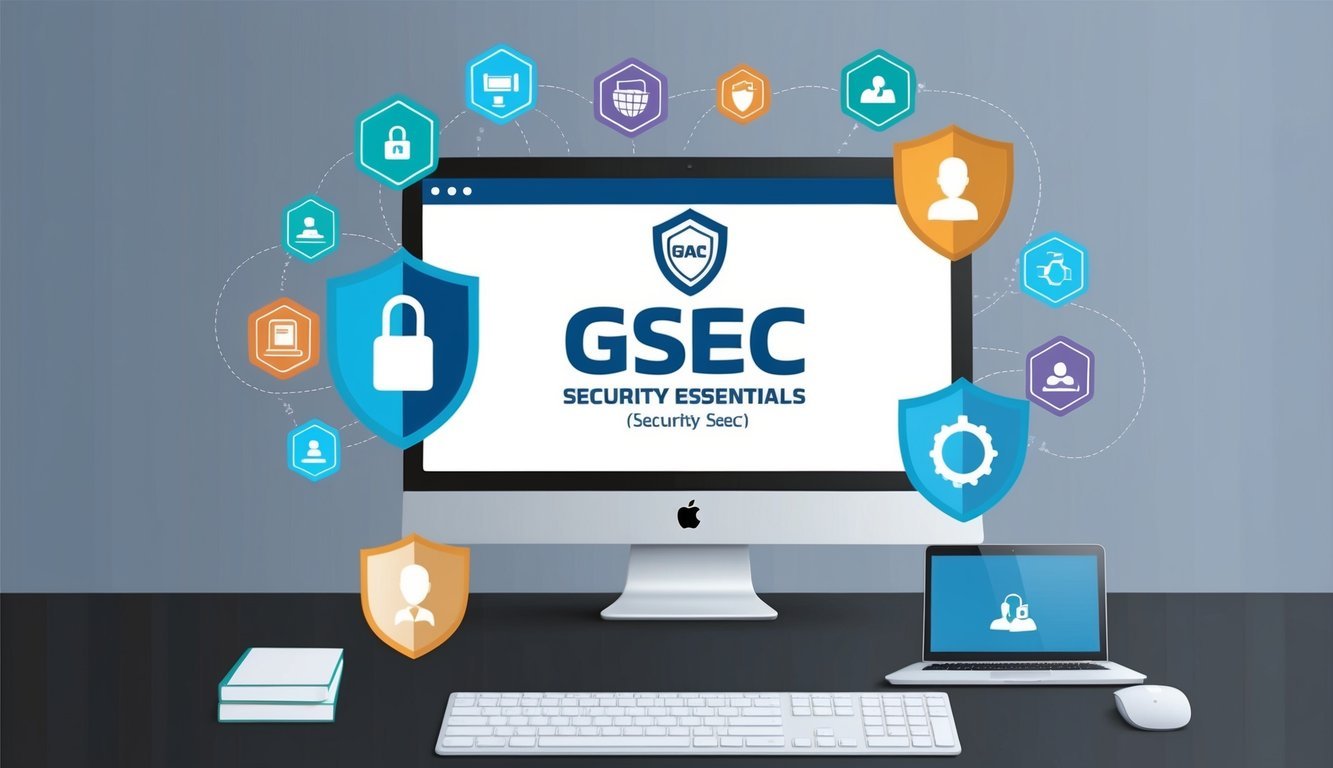
Want to level up your IT security skills? The GIAC Security Essentials (GSEC) certification might be exactly what you’re after.
This course goes beyond just the basics of security.
GSEC is tailored for hands-on IT roles focused on security.
You’ll dive into defense-in-depth, access control, and password management—essential skills for keeping systems secure.
The course covers a broad range of topics, including network security, cloud security, and endpoint protection.
Think of it as a complete toolbox for security.
To earn your certification, you’ll take an exam, but don’t worry.
The SEC401: Security Essentials training is designed to prep you perfectly for the GSEC exam.
Once you pass, you’ll join the ranks of skilled professionals known for their practical security knowledge.
It’s a fantastic way to show employers you’re serious about IT security.
Why IT Security Skills Matter
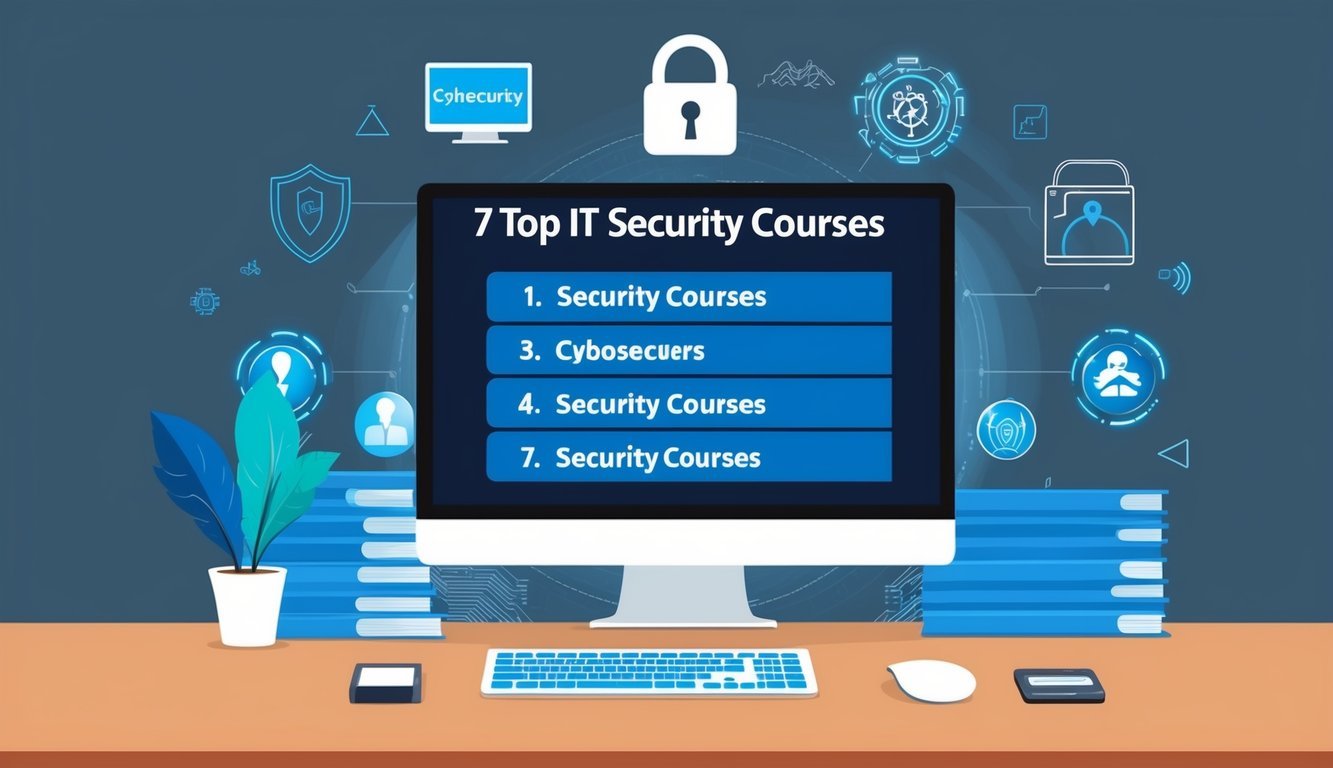
IT security skills are essential in today’s tech-driven world.
They protect organizations from cyber threats and open up exciting career paths.
Let’s highlight why these skills are worth your time.
The Growing Importance of Cybersecurity
Cyber attacks are on the rise, and both big corporations and small businesses are in the crosshairs.
Hackers are becoming savvier, and their attack methods are getting more sophisticated.
This reality means IT security pros need to level up their game.
You’ve got to be sharp enough to spot threats and neutralize them effectively. Cloud security skills are critical nowadays, given the increasing reliance on cloud computing.
Emerging tech like AI and IoT brings new risks, and understanding how to safeguard these systems is a must.
Staying updated with the latest security trends is crucial.
Career Growth and Opportunities
IT security jobs are red-hot right now.
There simply aren’t enough skilled pros to fill the open positions, which means you can expect great job security and plenty of options.
The potential salary here is also sweet.
Some cybersecurity certifications can lead to salaries north of $140,000 a year! How’s that for motivation?
There’s no shortage of career paths either.
You could find yourself as an IT audit manager, security analyst, or project manager.
As you gain experience, you can easily climb the ladder.
Getting certified can give your career an extra boost.
It proves to employers that you know your stuff, and you’ll definitely learn valuable new skills along the way.
How to Choose the Right IT Security Course
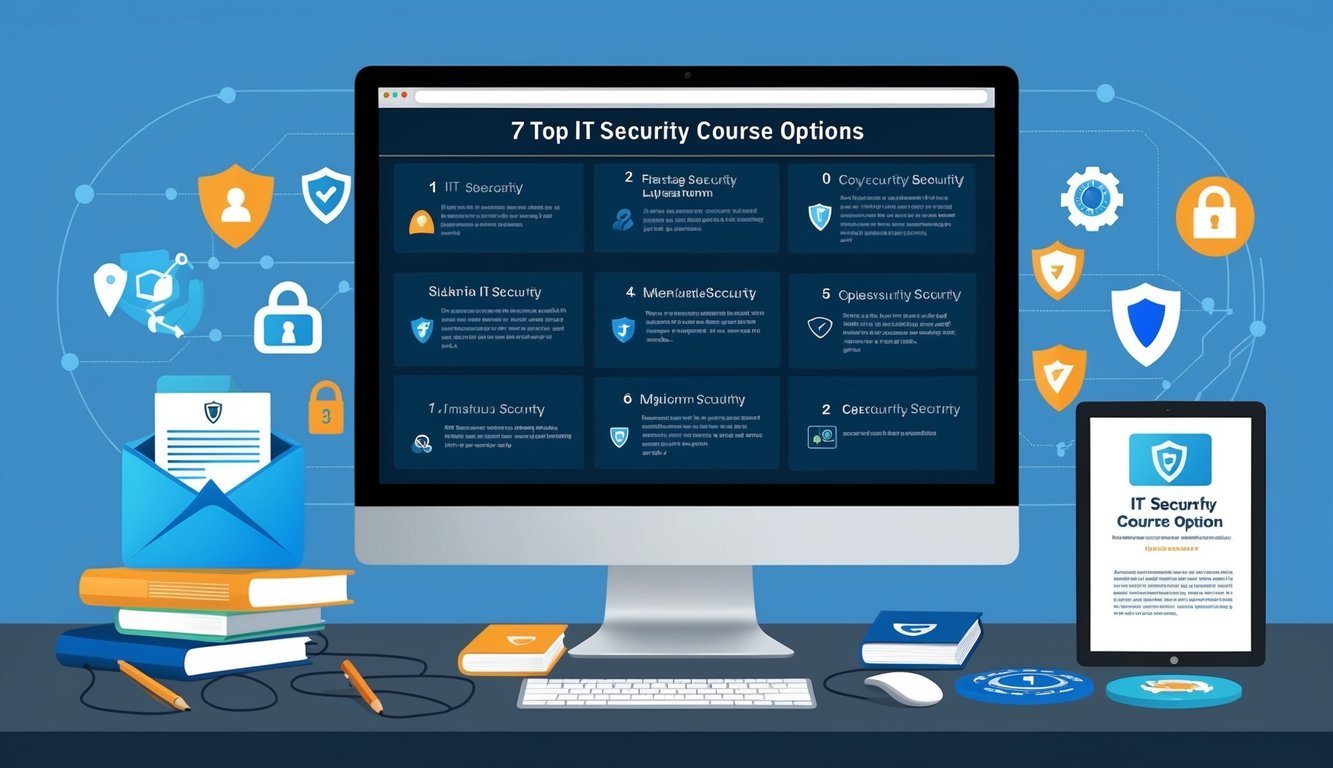
Choosing the right IT security course can feel like a bit of a puzzle.
You’ll want to think about your skill level and what kind of certification you’re aiming for.
Let’s break it down.
Understanding Different Course Levels
Are you a beginner or a seasoned pro? That’s the first question to ponder.
Beginner courses dive into the basics, covering essentials like network security fundamentals.
If you’re just starting out, these courses are fantastic.
Intermediate courses dig a little deeper into topics like ethical hacking and risk management, which are ideal if you’ve got some experience already.
Advanced courses? They’re meant for those who are already well-versed in IT security.
Expect to tackle complex topics like advanced threat detection.
You should definitely have some prior experience for these.
Remember, starting small is totally okay.
You can always level up later on!
Considering Course Accreditation and Certification
Certifications can really give your career a boost, but not all are created equal.
Look for courses that prep you for well-known certs like CompTIA Security+ or CISSP.
Check if the course is accredited—that’s a good sign it meets industry standards.
Employers often prefer courses that are accredited.
Some courses will offer their own certificates, which can be helpful, but make sure they’re recognized in the industry.
Don’t forget to review the course content.
Does it cover what’s essential? Will it help propel you toward your career goals?
Lastly, consider the time and money required to commit.
Some courses might be quick and inexpensive, while others may take longer and cost more.
Choose what fits your objectives and budget.
Frequently Asked Questions
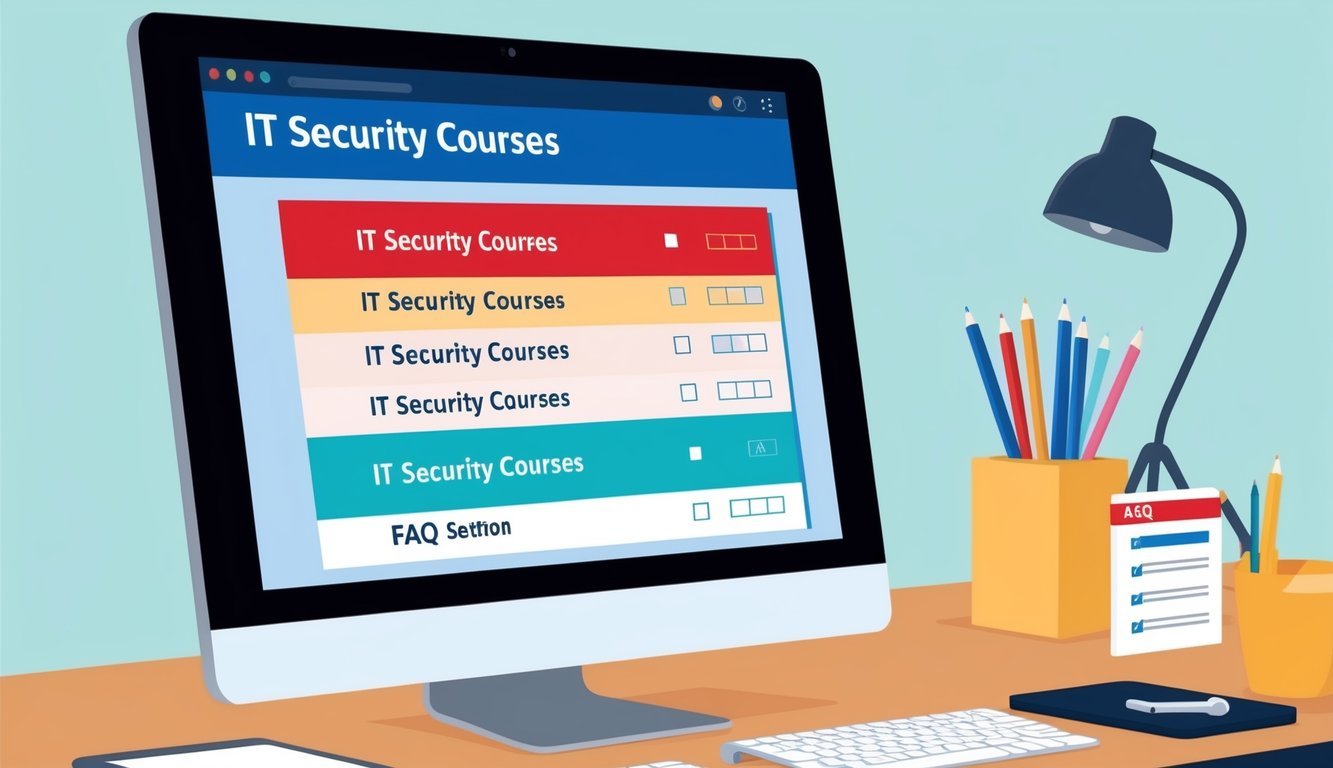
Cybersecurity courses and certifications are a fantastic way to amplify your career in IT security.
There’s a wide range of options, from beginner-friendly offerings to advanced programs.
What are the best beginner-friendly cybersecurity courses available?
If you’re just starting, the CompTIA Security+ course is a solid choice.
It covers the basics without requiring much experience.
Another great option is the CSX Technical Foundations Certificate, which helps you grasp core security concepts.
Which certifications should I aim for to land a high-paying job in cybersecurity?
If you’re looking to increase your earnings, go for the Certified Information Systems Security Professional (CISSP).
It’s highly respected and can open doors to senior-level roles.
The Certified Information Security Manager (CISM) is another solid pick for management positions.
Can I find quality cybersecurity courses that are free?
Take a look at Coursera.
You can often audit courses from top universities for free, getting access to lectures and materials without needing to pay for certification.
Where’s the coolest spot to pick up cyber security skills online without spending a dime?
If you’re after a fun, free learning experience, give Hack The Box a whirl.
It’s like a playground for ethical hackers where you can roll up your sleeves and tackle real-world scenarios.
You learn by doing, which is a pretty remarkable way to build your skills!
What sort of security certifications do companies value the most?
Companies often look for the Certified Ethical Hacker (CEH) certification.
It demonstrates that you can think like a hacker to secure systems effectively.
The Certified Information Systems Auditor (CISA) is also in high demand, particularly in regulated industries.
Are there any courses specifically focused on physical security out there?
While most courses focus on digital security, some do cover aspects of physical security.
Look for programs that focus on topics like access control and CCTV systems.
The ASIS Physical Security Professional (PSP) certification is a solid choice if you’re looking to specialize in this area.

